Share
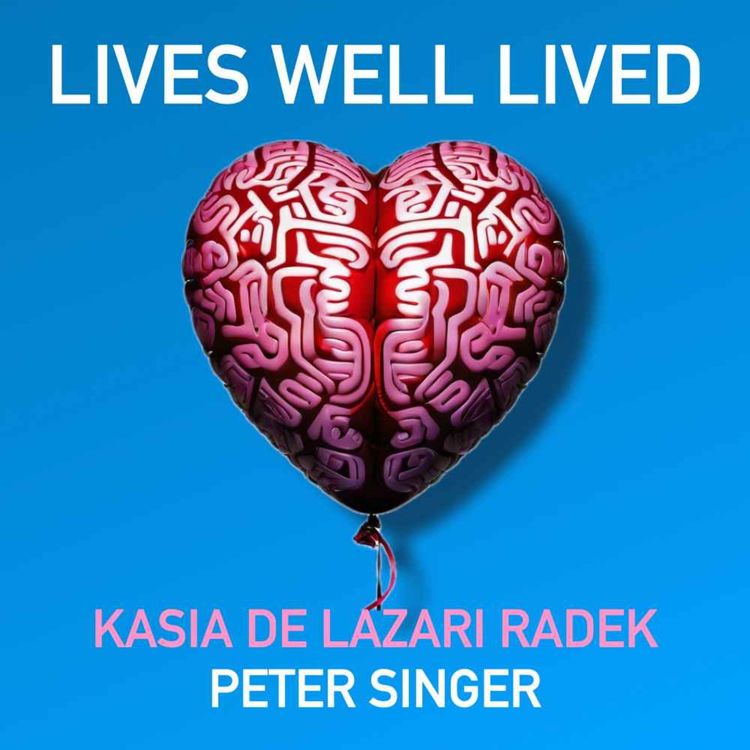
Lives Well Lived
SIGAL SAMUEL: why saving strangers might make you a villain
Season 2, Ep. 13
•
Sigal Samuel is a writer, editor, and journalist known for her work on religion, technology, and ethics. Sigal shares her value-driven approach to life, offering insights into moral decision-making, ethical giving, and the complexities of modern ethical dilemmas.
Got an ethical dilemma? reach out to Sigal at her advice column Your Mileage May Vary
Read Future Perfect
Keep up to date with Peter on Substack
Keep up to date with Kasia!
Executive Producer: Rachel Barrett
Thanks to our volunteer researchers Hendrik Dahlmeier and Mihika Chechi
And special thanks to Suzi Jamil
More episodes
View all episodes
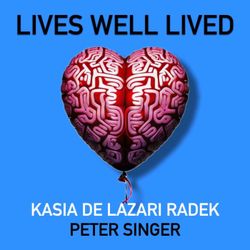
2. REBECCA GOLDSTEIN thinks we are all attention seeking
01:02:07||Season 4, Ep. 2Rebecca Goldstein is an American philosopher, and novelist of 'The Mind Body Problem'. Goldstein examines the human need to feel that one’s life matters, and the ways people justify their existence through relationships, achievements, fame, and moral purpose.Keep up to date with Peter on SubstackKeep up to date with Kasia!Executive Producer: Rachel Barrettspecial thanks to Suzi Jamil!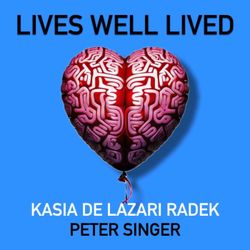
1. forget happiness, JENNIFER WALLACE thinks mattering is the key to a fulfilling life
51:52||Season 4, Ep. 1Jennifer Wallace is an American journalist and author best known for her book Never Enough: When Achievement Culture Becomes Toxic—and What We Can Do About It, which explores how high-pressure achievement environments impact mental health. Jennifer explores the concept of 'mattering' and distinguishes the difference between self-esteem and mattering.Keep up to date with Peter on SubstackKeep up to date with Kasia!Executive Producer: Rachel Barrettspecial thanks to Suzi Jamil!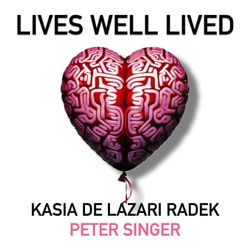
21. (RE-RELEASE) LISA FELDMAN BARRETT: everything you know about the brain is wrong!
01:14:22||Season 3, Ep. 21Lisa Feldman Barrett is a neuroscientist, psychologist, and author known for her groundbreaking research on how emotions are created by the brain rather than simply triggered by external events. She has challenged traditional views of emotion and helped establish new ways of understanding the construction of emotional experiences.Lisa talks about how the brain's processes can help overcome anxiety related to public speaking, and the construction of social reality.Keep up to date with Peter on SubstackKeep up to date with Kasia!Executive Producer: Rachel Barrettspecial thanks to Suzi Jamil!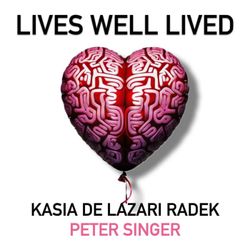
20. (RE-RELEASE) Why YUVAL NOAH HARARI thinks modern society is on the brink of collapse
56:08||Season 3, Ep. 20Professor. Yuval Noah Harari is a historian, philosopher, and the bestselling author of Sapiens: A Brief History of Humankind. His books have sold over 45 Million copies in 65 languages, and he is considered one of the world’s most influential public intellectuals today.Yuval discusses the the main victims of history throughout the ages, and what was arguably the worst crime in history, and gives his views on the importance of love and intellect.Keep up to date with Peter on SubstackKeep up to date with Kasia!Executive Producer: Rachel Barrettspecial thanks to Suzi Jamil!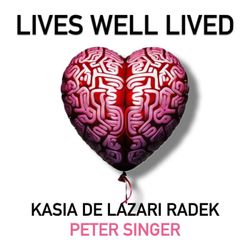
19. (RE-RELEASE) INGRID NEWKIRK: the dark side of animal rights
01:20:52||Season 3, Ep. 19Ingrid Newkirk is an author, activist, and president of People for the Ethical Treatment of Animals (PETA), the world's largest animal rights organisation. Ingrid discusses PETA's achievements, and the compromises she has had to make in order to reduce the vast universe of suffering that humans inflict on animals, and how these ideals could be implemented throughout society to enable revolutionary change.Keep up to date with Peter on SubstackKeep up to date with Kasia!Executive Producer: Rachel Barrettspecial thanks to Suzi Jamil!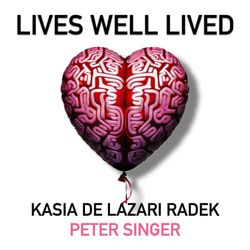
18. (RE-RELEASE) DANIEL KAHNEMAN: understanding how we make decisions
01:03:45||Season 3, Ep. 18Daniel Kahneman was an Israeli-American psychologist, awarded the 2002 Nobel Memorial Prize in Economic Sciences, and his work revolutionised our understanding of human decision-making. This is Kahneman's last public interview before his death on March 27, 2024.Keep up to date with Peter on SubstackKeep up to date with Kasia!Executive Producer: Rachel Barrettspecial thanks to Suzi Jamil!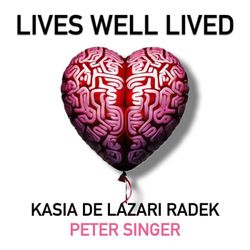
17. (RE-RELEASE) A.J. JACOBS exposes why living biblically means stoning adulterers!
01:12:05||Season 3, Ep. 17A.J. Jacobs is an author, humourist and journalist, who has written four New York Times bestsellers. Jacobs discusses his unique life as a 'human guinea pig,' exploring different ways of living through immersive year-long experiments such as living according to all biblical rules, and living like America's Founding Fathers. A.J. discusses his motivations behind these experiments, and recounts his experiences with radical honesty, and biblical literalism.This episode is sponsored by GiveWell. You can have your donation matched up to $100 before the end of the year! (or as long as matching funds last) go to givewell.org to donate or find out more. Enter LIVES WELL LIVED at the checkout!Keep up to date with Peter on SubstackKeep up to date with Kasia!Executive Producer: Rachel Barrettspecial thanks to Suzi Jamil!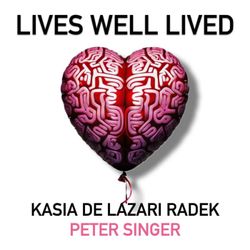
16. MARION NESTLE exposes the dark truth about ultra processed foods
01:02:08||Season 3, Ep. 16Marion Nestle is a leading American nutritionist, academic, and public health advocate who became a public figure at 66 with her book 'Food Politics'. Nestle is best known for exposing how food industry politics, and lobbying shape what people eat, and how nutrition science is used. Marion discusses her dietary habits, and gives her opinion on ultra-processed foods, and a critique on the food industry's marketing strategies.learn more about Marion and read her blog Food PoliticsThis episode is sponsored by GiveWell. You can have your donation matched up to $100 before the end of the year! (or as long as matching funds last) go to givewell.org to donate or find out more. Enter LIVES WELL LIVED at the checkout!Keep up to date with Peter on SubstackKeep up to date with Kasia!Executive Producer: Rachel BarrettThanks to our volunteer researcher Chris van Ryn! And special thanks to Suzi Jamil!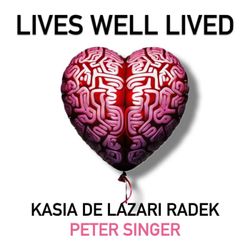
15. PAUL SIMON: life beyond the sound of silence
01:15:08||Season 3, Ep. 15Paul Simon is an American singer-songwriter and one of the most influential figures in modern music, with songs like The Sound of Silence, Mrs. Robinson, and Bridge Over Troubled Water, Paul is known for his intricate songwriting, poetic lyricism, and music that explores spirituality, memory, and the human condition.Paul shares insights into his legendary songwriting career, focusing on his iconic song 'The Sound of Silence,' written at age 21. Simon reflects on his creative process, the evolution of his music over decades, his 33-minute piece 'Seven Psalms,' and the nature of musical inspiration. He contemplates his legacy, personal happiness, and the influence of other musicians on his life.This episode is sponsored by GiveWell. You can have your donation matched up to $100 before the end of the year! (or as long as matching funds last) go to givewell.org to donate or find out more. Enter LIVES WELL LIVED at the checkout!Listen to NPR Saving Lives with Fewer Dollars and learn more about GiveWellKeep up to date with Peter on SubstackKeep up to date with Kasia!Executive Producer: Rachel BarrettThanks to our volunteer researcher Chris van Ryn! And special thanks to Suzi Jamil!